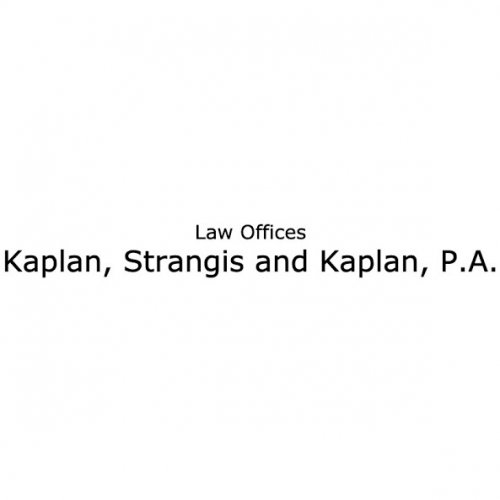Best International Trade Law Lawyers in Minneapolis
Share your needs with us, get contacted by law firms.
Free. Takes 2 min.
List of the best lawyers in Minneapolis, United States
About International Trade Law in Minneapolis, United States
International Trade Law in Minneapolis pertains to the body of rules and agreements that govern commerce between Minneapolis-based entities and other countries. As a major economic hub within the United States, Minneapolis hosts a variety of businesses engaged in international trade. This area of law covers import and export regulations, tariffs, trade agreements, and dispute resolutions. Local businesses must navigate these intricate rules to ensure compliance and to take advantage of trade opportunities.
Why You May Need a Lawyer
Individuals and businesses may require legal assistance in International Trade Law for several reasons. Common situations include navigating complex import/export regulations, resolving disputes arising from international contracts, dealing with customs issues, understanding and complying with tariffs, and guidance on international trade agreements. A lawyer with expertise in International Trade Law can help mitigate risks, ensure regulatory compliance, and optimize trade transactions.
Local Laws Overview
While International Trade Law primarily deals with federal and international regulations, Minnesota's legal landscape can still impact trade activities. Businesses in Minneapolis should be mindful of state-specific business regulations, tax implications, and any local trade incentives or restrictions. Additionally, some local ordinances may influence aspects related to logistics, insurance, and environmental regulations tied to international trade activities.
Frequently Asked Questions
1. What is the role of customs in international trade?
Customs is responsible for regulating the flow of goods in and out of a country, ensuring compliance with trade regulations, collecting tariffs, and preventing illegal imports and exports.
2. How can I ensure compliance with trade agreements?
Compliance can be ensured by staying informed about relevant trade agreements and seeking advice from legal experts who specialize in trade law to navigate and apply these agreements accurately.
3. What are some common import/export restrictions?
Common restrictions include quotas, embargoes, sanitary and phytosanitary measures, and certain technical barriers to trade. Restrictions vary depending on the goods and the countries involved.
4. How do tariffs affect my business?
Tariffs can increase the cost of imported goods, affecting pricing and competitiveness. Understanding and strategically managing tariffs is crucial for minimizing financial impacts on a business.
5. What is a trade dispute, and how is it resolved?
A trade dispute arises from disagreements over the terms or enforcement of trade agreements. Resolutions can involve negotiation, mediation, arbitration, or litigation in relevant jurisdictions or international bodies.
6. How does U.S. law impact international trade?
U.S. trade laws establish regulations, tariffs, and trade sanctions that directly impact international trade. Compliance with both U.S. and international laws is essential for Minneapolis-based businesses.
7. What are the potential penalties for trade law violations?
Penalties can include fines, seizure of goods, revocation of trade privileges, and other legal actions. Violations can also damage business reputation and international relationships.
8. What support does the U.S. government provide for international trade?
The U.S. government provides resources through agencies such as the Department of Commerce, Export-Import Bank, and Small Business Administration to support businesses in international trade.
9. How can trade law impact intellectual property rights?
International trade law intersects with intellectual property through agreements and protections that prevent infringement, ensuring products adhere to intellectual property laws globally.
10. Can I handle international trade legal matters myself?
While it is possible, the complexities and high stakes involved in international trade law often necessitate professional legal guidance to ensure all aspects are handled properly and strategically.
Additional Resources
For additional information and assistance, you may want to connect with the Minnesota Trade Office, the U.S. Commercial Service, and the International Chamber of Commerce. Consider reaching out to local law firms specializing in International Trade Law and attending seminars and workshops designed to offer insights into trade law issues.
Next Steps
If you need legal assistance in International Trade Law, start by identifying your specific needs and gather all pertinent information related to your trade activities. Consider consulting with a specialized attorney who can provide tailored legal advice. Many law firms offer initial consultations, which are invaluable for assessing your situation and developing a strategic plan. Engaging with trade associations and networking with professionals in the field can also provide valuable support and resources.
Lawzana helps you find the best lawyers and law firms in Minneapolis through a curated and pre-screened list of qualified legal professionals. Our platform offers rankings and detailed profiles of attorneys and law firms, allowing you to compare based on practice areas, including International Trade Law, experience, and client feedback.
Each profile includes a description of the firm's areas of practice, client reviews, team members and partners, year of establishment, spoken languages, office locations, contact information, social media presence, and any published articles or resources. Most firms on our platform speak English and are experienced in both local and international legal matters.
Get a quote from top-rated law firms in Minneapolis, United States — quickly, securely, and without unnecessary hassle.
Disclaimer:
The information provided on this page is for general informational purposes only and does not constitute legal advice. While we strive to ensure the accuracy and relevance of the content, legal information may change over time, and interpretations of the law can vary. You should always consult with a qualified legal professional for advice specific to your situation.
We disclaim all liability for actions taken or not taken based on the content of this page. If you believe any information is incorrect or outdated, please contact us, and we will review and update it where appropriate.














